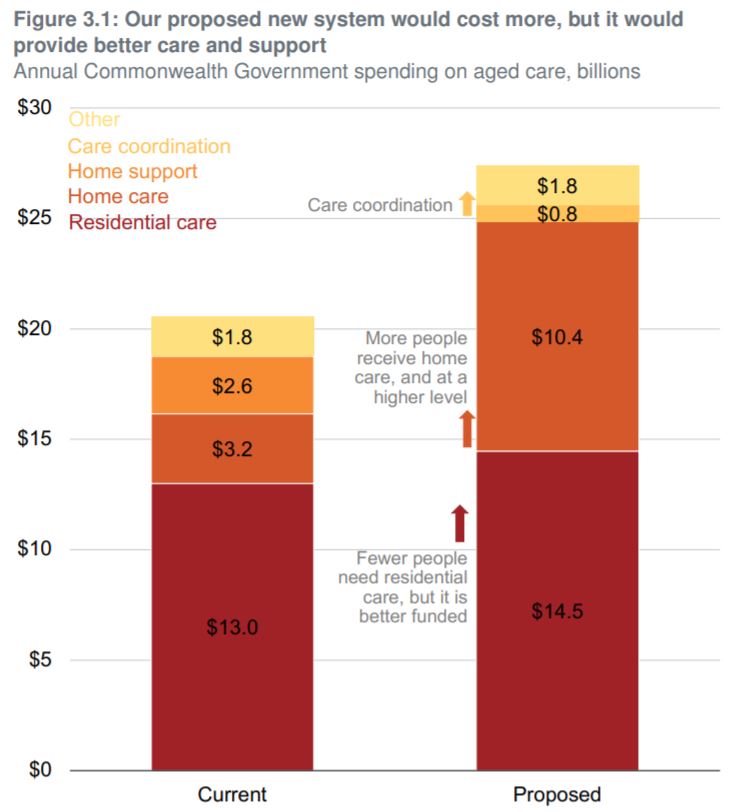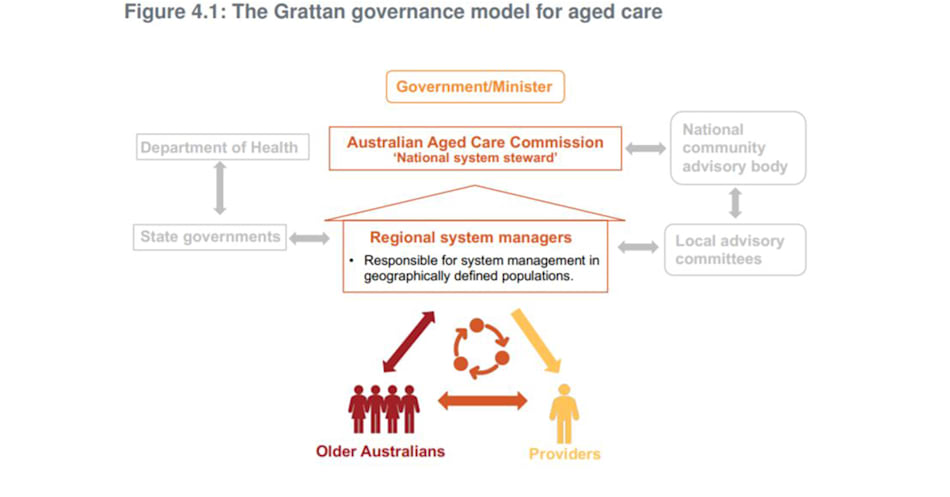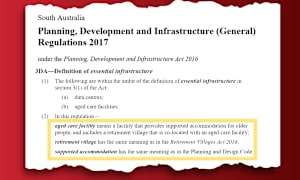Last week, the independent thinktank pointed to a return to Government-run residential care as unrealistic – this week, it has released its latest paper outlining its plan for reforming Australia’s aged care system which bears a number of similarities with the Counsel Assisting’s recommendations to the Royal Commissioners.
As we reported here, Grattan had published a report proposing a new system based on human rights principles back in October but with little practical detail.
The 84-page report provides much more explanation of how this could be achieved.
Universal access to aged care guaranteed
Under their plan, a new Aged Care Act should guarantee care and support for all who need it.
 Australia would be divided into 30 regions, with older Australians to have access to a local ‘assessment officer’ to draw up their support plan, and a local ‘support manager’ to act as their advocate in obtaining aged care services.
Australia would be divided into 30 regions, with older Australians to have access to a local ‘assessment officer’ to draw up their support plan, and a local ‘support manager’ to act as their advocate in obtaining aged care services.
Aged care homes would have to meet minimum resident-to-carer ratios, and provide 24/7 RNs, while carers would be required to be registered and better trained.
Aged care residents would contribute to their accommodation costs by paying rent, but a means test would be put in place to ensure people who couldn’t afford the rent would pay less or not at all.
New system ‘steward’ put in place
The report also puts forward a governance approach with clearly defined roles for the Department of Health and a new Australian aged care commission (similar to the one proposed by the Counsel Assisting), backed by a network of ‘regional system managers’ that would take over some of the functions of the existing Aged Care Quality and Safety Commission (ACQSC).
Authors Stephen Duckett, Anika Stobart, and Hal Swerissen say this new commission would ‘steward’ the system, by:
- Managing overall system functioning according to the principles and rules under the Aged Care Act, including setting and/or varying quality standards and setting the rules for new entrants;
- Monitoring compliance with national standards through the work of regional system managers, and publish comparative performance data;
- Overseeing regional system managers, including their regulation of provider performance, pricing of regional system services, and ensuring the effectiveness of service system management;
- Providing a second line of defence for accountability and enforcement; and
- Being responsible for workforce planning, including the setting of minimum workforce standards and training requirements under a new workforce register.
Department of Health to take a step back
Again, like the Counsel Assisting proposals, Grattan says this body should have a skills-based board that reports to the relevant Minister with the current Aged Care Financing Authority and the Aged Care Quality and Safety Commission to be incorporated in.
The Department of Health would continue to have a role in providing policy advice to government and the national system steward – but most of its functions would be divested to regional system managers who would add a ‘personal touch’ by liaising directly with providers.
This new system would be phased in over three years, starting next year with a trial in the two smallest states, South Australia and Tasmania.
Until then, the Federal Government would create a one-off $1 billion national ‘rescue fund’ to force poorly-performing providers to lift their game or get out of the system.
“Australia must learn the lessons from the Royal Commission into Aged Care Quality and Safety by building a new, high-quality aged care and support system that respects the rights of all older Australians,” they conclude.
$7 billion still lower than projected cost of Royal Commission recommendations
The changes come at a cost however – an additional $7 billion a year or a 35% increase on the current funding.
It would still likely cost less than the Counsel Assisting recommendations – following his webinar last week, Health Metrics CEO and founder Steven Strange tells us that their back-of-envelope calculations on their cost reached $30 billion before they stopped counting.
Could the Grattan Institute proposals be a viable option then if the Government decides the Royal Commission’s findings will strain the Budget?










